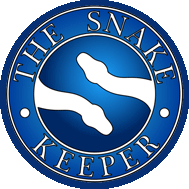The United Kingdom and Japan have obtained doses through pre-emption agreements, but they will also participate in Covax, an option that the United States could follow. CEPI is an innovative partnership between public, private, philanthropic and civil organizations, which was launched in 2017 in Davos to develop vaccines to stop future epidemics. CEPI moved with great urgency and in coordination with WHO in response to the birth of COVID-19. CEPI has established nine partnerships to develop vaccines against the new coronavirus. The programs use crisis management platforms already supported by CEPI and new partnerships. The United States says it will not participate in WHO-related efforts to develop and distribute vaccines against coronavirus. In addition, in June, Gavi launched the COVAX Advance Market Commitment (AMC), a financial instrument designed to support the participation of 92 low- and middle-income economies in the COVAX facility. COVAX AMC raised more than $600 million to initially secure $2 billion by the end of 2020 in seed funding from government, philanthropy and the private sector. Funding for COVAX AMC will be essential to ensure that solvency does not impede access to COVID 19 vaccines, a situation that would leave the majority of the world unprotected, as the pandemic and its effects continue unabated. Ultimately, the program aims to provide 2 billion doses of safe and effective vaccines worldwide by the end of 2021. Nine other candidate vaccines, which complement CEPI`s current portfolio, are currently being evaluated for inclusion in COVAX.
In addition, COVAX will consider purchasing vaccines that complement the portfolio of every producer in the world; Discussions are ongoing with a number of other manufacturers that do not receive CEPI`s support for research and development to obtain their vaccines if they are successful. Maximizing the vaccine portfolio increases the likelihood of success, as different vaccines have historically had a high failure rate. Prior to the emergence of COVID-19, CEPI`s priority diseases were Ebola, Lassa virus, medium respiratory coronavirus, nipah virus, Rift Valley Fever and chikungunya virus. CEPI has also invested in platform technologies that can be used for rapid vaccines and immunoprophylactic development against unknown pathogens (Disease X). Standardization of Coronavirus Vaccines (COVID-19) Eighty higher-income economies, which would fund vaccines from their own public budgets, have so far presented expressions of interest before the August 31 deadline to confirm the intention to participate. They will work with 92 low- and middle-income countries that will be supported by the CMA when it reaches its funding targets. Together, this group of 172 countries represents more than 70% of the world`s population. This group includes representatives from all continents and more than half of the G20 economies. To date, governments, vaccine manufacturers, organizations and individuals have allocated $1.4 billion ($1.1 billion) for vaccine research and development. In a document detailing the agreement, “all countries should gradually receive slices [of the vaccine] to cover each subset of their target groups …… until they can cover 3% of the population.” Act Accelerator is a groundbreaking global collaboration to accelerate the development, production and equal access to COVID 19 tests, treatments and vaccines.
COVAX is co-chaired by Gavi, the Coalition for Epidemic Preparedness Innovation (CEPI) and WHO.



 netviper digital studio
netviper digital studio